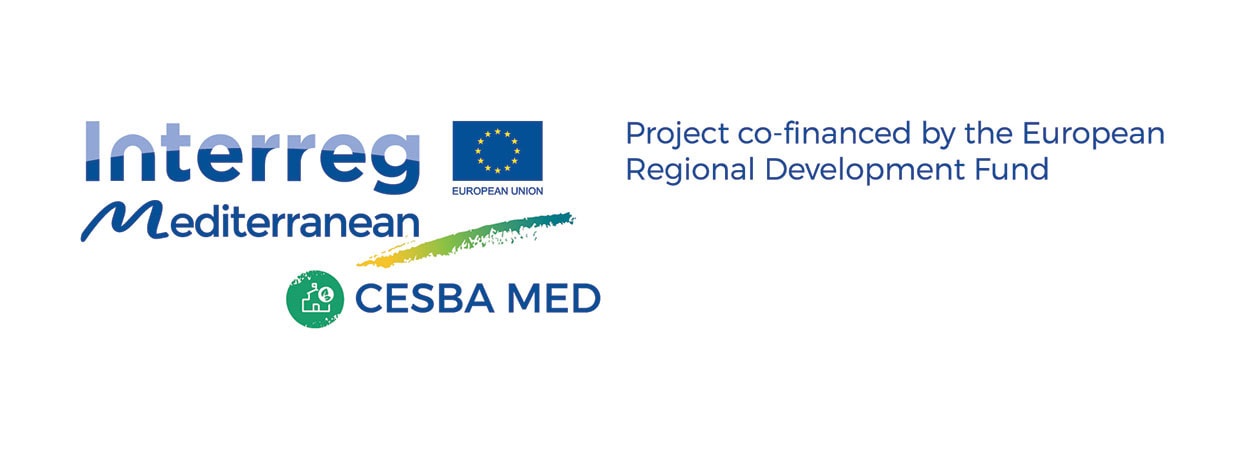CESBA MED Interreg Med Project
The CESBA MED Sustainable Med Cities Project promotes a neighbourhood level approach to develop synergies in energy efficiency. This Interreg Med Project is coordinated by Prof. Ruben Paul Borg from the Faculty for the Built Environment at the University of Malta.
Energy efficiency improvement is a key strategy to reduce the environmental impact of public buildings. However energy efficiency plans do not fully exploit the potential for synergies that groups of buildings might offer.
Energy efficient measures and their implementation at neighbourhood level (i.e. district heating, PV installations, etc) are showing clearly that a building scale approach is not optimal in reaching significant and cost-effective improvements. At the neighbourhood scale, decision making processes and the design of the intervention are more complex. Several EU projects addressed this issue proposing different methodologies, tools and indicators.
CESBA MED shall exploit the results of 10 previous EU projects and identify the most affordable and operational solutions. The evaluation of the test results shall lead to the development of a common sustainability assessment framework at urban scale, together with a set of 8 regional assessment tools (CESBA MED SNTool) and an innovative decision making process. These shall be developed in order to support the development of energy efficiency plans for public buildings in the context of their surrounding neighbourhoods. The CESBA SNTool shall lead to the MED Passport enabling the comparison of the performances of buildings and neighbourhoods, in line with the EC COM 2014 445.
A CESBA MED network of cities will be set up to maximise the transferability of results. Training courses and workshops shall be organized in the MED area. The project will be part of the European CESBA initiative.
The CESBA MED Interreg Med Project Objectives include the following:
The CESBA Med Project refers to Investment Priority-Specific Objective 2-1-1 of the Interreg Med Programme (Priority Axis 2: Fostering low-carbon strategies and energy efficiency in specific MED territories: cities, islands and remote areas; To raise capacity for better management of energy in public buildings at transnational level).
The CESBA MED Sustainable Med Cities Project promotes a neighbourhood level approach to develop synergies in energy efficiency. This Interreg Med Project is coordinated by Prof. Ruben Paul Borg from the Faculty for the Built Environment at the University of Malta.
Energy efficiency improvement is a key strategy to reduce the environmental impact of public buildings. However energy efficiency plans do not fully exploit the potential for synergies that groups of buildings might offer.
Energy efficient measures and their implementation at neighbourhood level (i.e. district heating, PV installations, etc) are showing clearly that a building scale approach is not optimal in reaching significant and cost-effective improvements. At the neighbourhood scale, decision making processes and the design of the intervention are more complex. Several EU projects addressed this issue proposing different methodologies, tools and indicators.
CESBA MED shall exploit the results of 10 previous EU projects and identify the most affordable and operational solutions. The evaluation of the test results shall lead to the development of a common sustainability assessment framework at urban scale, together with a set of 8 regional assessment tools (CESBA MED SNTool) and an innovative decision making process. These shall be developed in order to support the development of energy efficiency plans for public buildings in the context of their surrounding neighbourhoods. The CESBA SNTool shall lead to the MED Passport enabling the comparison of the performances of buildings and neighbourhoods, in line with the EC COM 2014 445.
A CESBA MED network of cities will be set up to maximise the transferability of results. Training courses and workshops shall be organized in the MED area. The project will be part of the European CESBA initiative.
The CESBA MED Interreg Med Project Objectives include the following:
- exploit results from 10 previous EU projects and develop energy efficiency plans at neighbourhood level in five Mediterranean cities
- develop a CESBA MED Passport for public buildings, including a sustainable neighbourhood toolkit, and a training system
- organise a CESBA Sustainable MED Neighbourhood Award
- produce a booklet on best practices.
The CESBA Med Project refers to Investment Priority-Specific Objective 2-1-1 of the Interreg Med Programme (Priority Axis 2: Fostering low-carbon strategies and energy efficiency in specific MED territories: cities, islands and remote areas; To raise capacity for better management of energy in public buildings at transnational level).
CESBA Med developed a Training programme for the Sustainability Assessment of Buildings and Neighbourhoods.


